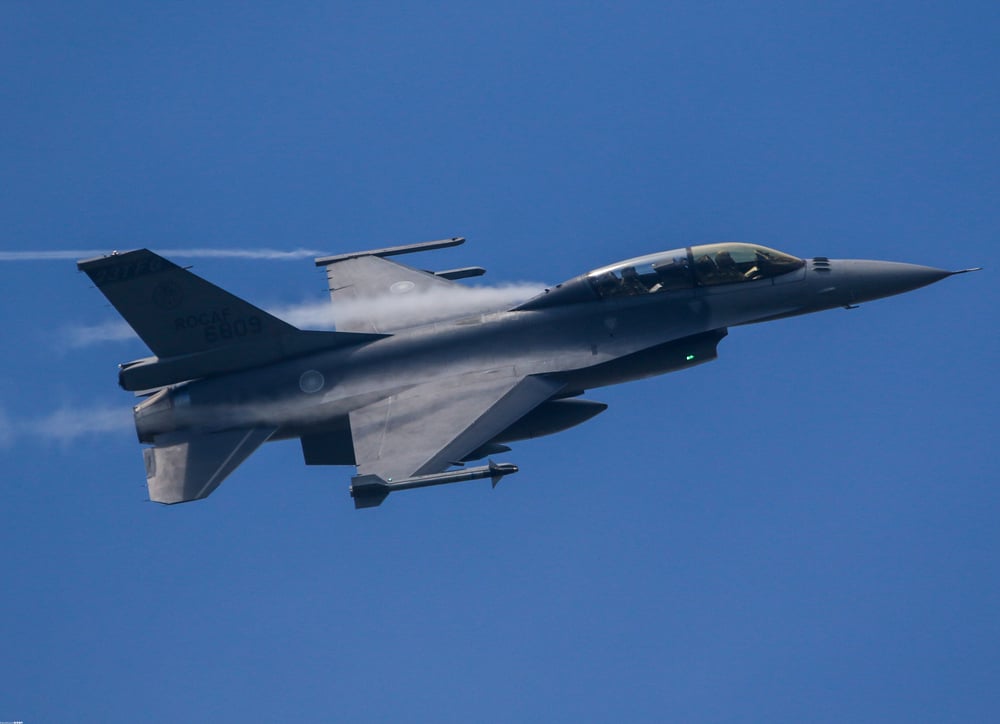China on Monday initiated a series of intense military drills off the coast of Taiwan, calling them a “punishment” for recent comments made by Taiwan’s President William Lai. In a speech marking Taiwan’s national day, Lai vowed to “resist annexation” and defend the island’s sovereignty from any attempts to undermine it. The drills have heightened tensions in a region already on edge, with China insisting that Taiwan, a self-governing island, is part of its territory, and Chinese President Xi Jinping reiterating his resolve to reunify the island by force if necessary.
Massive Show of Force Surrounding Taiwan
On Monday, Taiwan reported the presence of 34 Chinese naval vessels and 125 military aircraft in formation around the island. Chinese state media confirmed that its forces were positioned across the entire perimeter of Taiwan, with maps showing military assets surrounding the island. The People’s Liberation Army (PLA) revealed that the drills, involving coordinated attacks from land, sea, and air, were aimed at testing its readiness for an assault on Taiwan.
According to Senior Captain Li Xi, spokesperson for the PLA Eastern Theater Command, the exercise “fully tested the integrated joint operation capabilities” of China’s armed forces. Despite the dramatic military activity, Taiwan’s airports and ports remained operational, with officials in Taipei prioritizing the avoidance of direct conflict while putting outlying islands on high alert.
Escalation of Long-Running Tensions
The drills, dubbed “Joint Sword 2024-B,” follow a pattern of military provocations from Beijing that began in 2022. Chinese fighter jets have frequently entered Taiwanese airspace, and several large-scale exercises have been conducted near the island. This latest round of drills had been anticipated for months, following the May staging of Joint Sword 2024-A, which was China’s largest exercise to date and timed to coincide with President Lai’s inauguration.
China views Lai as a staunch advocate of Taiwanese independence, a stance Beijing considers intolerable. His comments during the national day speech were swiftly condemned by China as “sinister intentions” aimed at destabilizing cross-strait relations. In response, the Chinese foreign ministry described Taiwanese independence as “incompatible” with peace in the region, emphasizing that military force could be necessary to maintain stability.
US Response and International Implications
The United States has also weighed in on the situation, criticizing China’s military response to what it described as a “routine” speech by President Lai. Washington urged Beijing to refrain from further actions that could destabilize the region, calling for peace and stability to prevail. The relationship between the US, Taiwan, and China has been a sensitive issue for decades, and tensions over Taiwan’s sovereignty have repeatedly sparked international incidents.
The history of military intimidation by China dates back to 1996 when Taiwan held its first direct presidential elections. In response, China conducted missile tests near the island, leading then-US President Bill Clinton to quietly move US Navy forces into the Taiwan Strait. More recently, Nancy Pelosi’s visit to Taiwan in August 2022—the first by a sitting US House Speaker since 1997—further escalated tensions. Beijing viewed her visit as a provocation and responded with military drills that included flying ballistic missiles over Taiwan and into the Pacific Ocean.
A Recurring Pattern of Military Posturing
China’s military actions this week fit into a broader pattern of aggressive posturing toward Taiwan. The PLA’s recent drills, while intense, are part of a larger strategy to demonstrate China’s readiness to reclaim Taiwan, if necessary, by force. The drills included naval exercises simulating blockades of Taiwanese ports, an increasingly familiar tactic in China’s growing military intimidation campaign. A heart-shaped route flown by Chinese patrol aircraft, noted by the Chinese coast guard, was a subtle but pointed display of control over the region.
Since Tsai Ing-wen of Taiwan’s Democratic Progressive Party (DPP) was elected president in 2016, China has ramped up its military pressure on the island. The DPP’s strong pro-independence stance has made any diplomatic progress between Taipei and Beijing unlikely, with China cutting off direct communication with Taiwan’s government. Each year, as Taiwanese leaders reaffirm their sovereignty, China’s military responses become more aggressive, signaling that the issue of Taiwan’s independence remains a critical flashpoint in Asia.





















